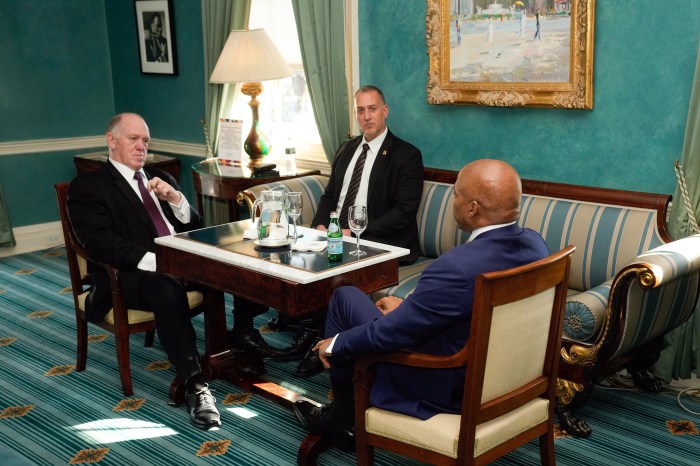BY ALINE REYNOLDS | Cancer is still not covered under the James Zadroga 9/11 Health and Compensation Act, per a decision by the law’s health program administrator, Dr. John Howard. In July Dr. Howard determined there was insufficient evidence linking the disease to exposure to Ground Zero toxins.
City politicians are now urging Dr. Howard to reconsider his decision based on a recent scientific study that suggests such a link indeed exists.
On Mon., Sept. 19, the City Council’s Committee on Civil Service and Labor voted unanimously in favor of a resolution calling on Dr. Howard and his team to review a 9/11 cancer study published in the Sept. 3 edition of The Lancet medical journal as soon as possible rather than wait a year as planned. The resolution, which follows a Congressional petition also requesting Dr. Howard’s immediate review of the data in the Lancet study, is scheduled to go before the full City Council on Wed., Sept. 21.
“New persuasive evidence has been compiled [indicating that] first responders who were at ground zero are getting cancer at a much higher rate than ones who weren’t,” said Council Member and Committee Chair James Sanders, Jr.
Scientific data reveals that city employees and residents present at the W.T.C. site on or shortly after 9/11 inhaled cancer-causing toxins such as benzene, dioxin, asbestos and polycyclic aromatic hydrocarbons, according to the City Council resolution. The Lancet study, in particular, concludes that firefighters who partook in the recovery effort at Ground Zero were 19 percent more prone to develop cancer than those who didn’t.
“I’m not a scientist,” Sanders said, “but that sounds like proof to me.”
Community Board 1 Chair Julie Menin called the fact that the federal government would neither treat nor compensate 9/11 cancer victims, particularly since the U.S. Environmental Protection Agency assured Downtown residents and recovery workers that the air was safe to breathe in the days following 9/11, “unconscionable.”
“In reliance of those words, we stayed… and some of us got sick with cancer,” Menin said. “For the government to even have a doubt of whether cancer should be covered is a slap in the face to our community.”
The NYC Patrolman’s Benevolent Association, a union representing members of the Police Department, has identified approximately 300 cancer cases among NYPD officers who served as first responders alone — two of which were cases of a rare anf fatal nasal cancer, according to Frank Tramontano, research director for the P.B.A.
“While we have been assured that the release of a new study by Mt. Sinai is imminent, we must not delay the treatment of responders who suffer from W.T.C.-related cancers while the slow wheels of bureaucracy and science turn,” said Tramontano. “To wait for the conclusion of epidemiology studies, which can take up to 30 years, to prove this sufficiently to the scientific community, will result in a lost opportunity to treat those who are ill.”
District Council 37, a union representing 9/11 first responders and area workers, also testified at the Sept. 19 hearing, stating its support of the City Council resolution and urging the W.T.C. Health Program’s newly formed Scientific and Technical Advisory Committee, charged with reviewing the scientific literature, to be convened at the “earliest possible date.”
“Recently published evidence of an increased risk of cancers among firefighters who served at ground zero highlights the severity of W.T.C. toxins and contaminants exposures,” D.C. 37 said in a written statement. “On behalf of the 125,000 members of D.C. 37 and the 50,000 retirees, we urge the City Council to pass this pre-considered resolution and work with us to ensure that the needs of this population are met.”




































